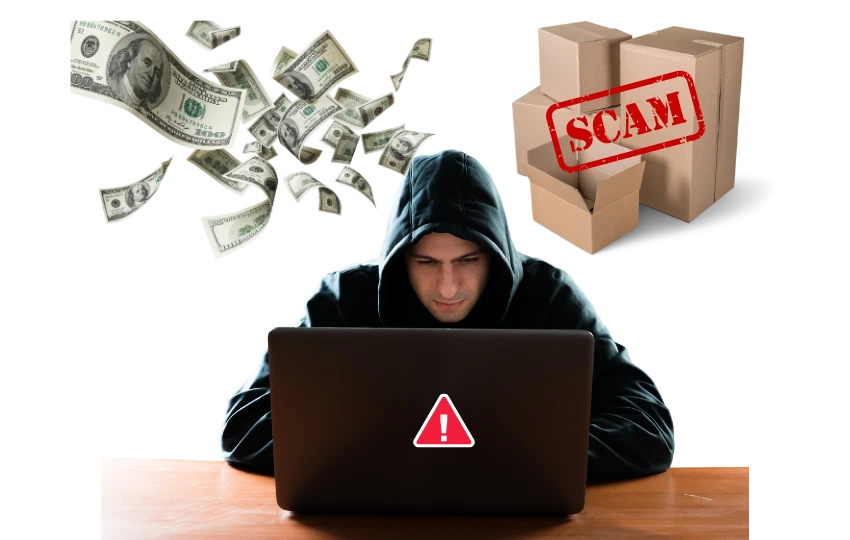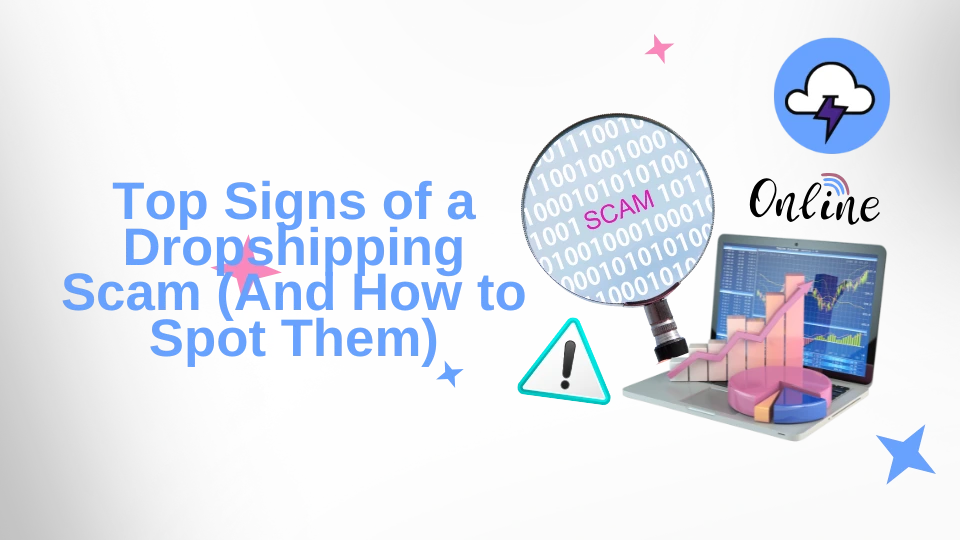Think dropshipping is an easy path to eCommerce success? Think again.
While the business model offers low overhead and flexible scaling, it's also a magnet for scams. Every day, beginners fall for traps disguised as shortcuts. If you're serious about launching a sustainable eCommerce business, you need to know the warning signs.
Let’s break down how to identify and avoid a dropshipping scam before it drains your time, trust, and wallet.
Fake Suppliers and Too-Good-To-Be-True Deals
Unrealistic Pricing
The first sign of a dropshipping scam is usually a supplier that seems too good to be true. They offer rock-bottom pricing on trending products, fast shipping claims, and shiny promises. But in reality? They deliver headaches, refunds, and chargebacks.
If a supplier offers unbelievably low prices, you’re likely looking at counterfeit products or unreliable sourcing. Legitimate suppliers in the eCommerce business need to cover manufacturing, labor, and shipping—real costs don’t vanish just because you’re dropshipping. These costs are essential for quality control and customer satisfaction, so anyone offering deep discounts with no explanation should raise immediate red flags.
No Proof of Legitimate Product Quality

Many scam suppliers fail to provide clear, legitimate product images or detailed descriptions. They often rely on generic visuals or use stolen stock photos from other websites, making it difficult to verify what you're actually going to receive. Some even go as far as fabricating testimonials or showcasing inflated reviews that don’t reflect real customer experiences.
Always ask for physical samples before entering a business agreement. Testing the product in advance gives you a clearer understanding of its quality and helps protect your e-commerce business from being associated with unreliable inventory.
Lack of Clear Communication
Legitimate suppliers respond to your inquiries promptly and professionally, providing clear timelines and answers to your questions. If your emails are ignored, responses are vague, or you're redirected without resolution, it’s likely you’re dealing with a shady source. Communication delays or a lack of clarity around important issues like order processing or inventory management are serious indicators that you're walking into a dropshipping scam. Good communication isn't just about customer service—it's a reflection of how a supplier runs their business and treats partners.
Research Supplier Background
Before you dive into any agreement, it’s critical to research the supplier’s background and reputation across multiple sources. Use external tools like Trustpilot, the Better Business Bureau, Reddit forums, or Facebook seller groups to see what others are saying.
A quick reputation check can expose patterns of fraud or uncover complaints that signal the presence of a dropshipping scam. It might take 20 minutes of your time, but those few minutes can save your eCommerce business from legal issues, bad reviews, or thousands in lost revenue.
No Business Info, Reviews, or Return Policies
Missing Contact Information
A classic dropshipping scam leaves out basic business essentials. Transparency isn’t just a best practice—it’s a survival rule in eCommerce.
If the website or supplier doesn't provide contact information, such as a physical address, email address, or phone number, be wary. Scammers often avoid providing ways for customers to reach them, making it harder to hold them accountable.
When contact information is missing, it’s often a calculated attempt to shield the dropshipping scam from scrutiny. Always make sure your eCommerce business only partners with suppliers who display full business credentials. Visibility and accountability are essential to keep your store safe.
No Reviews or Fake Testimonials
Reliable suppliers usually have authentic reviews from previous customers. The business could be fake if a website has no reviews or only glowing, generic testimonials. When reviews appear too perfect or repetitive, it’s often a tactic used in a dropshipping scam.
Third-party review platforms and niche eCommerce business forums are often the best sources for honest feedback. Never rely solely on what’s shown on the supplier’s website.
No Clear Return Policy
Legitimate businesses understand the importance of offering clear and fair return policies. If a dropshipping supplier doesn’t clearly state how returns and refunds are handled, or makes it nearly impossible, it might be a scam.
Unclear or restrictive return practices are often signs that you’re dealing with a dropshipping scam. A solid eCommerce business thrives on customer satisfaction, so any ambiguity here should be treated as a warning.
Need a safe way to start? Read How to Start Dropshipping for Free: A Beginner’s Guide to learn how to find legit suppliers from day one.
SuperDS is a trusted non-API eBay droplister that helps sellers streamline product listings without the risk of API suspensions or unreliable plugin-based systems. It’s built specifically to support long-term eCommerce growth by offering simple yet powerful tools for listing efficiency, making it a safer choice for anyone wanting to avoid dropshipping scams from the start.—an essential foundation when trying to protect your store from a dropshipping scam.
Unrealistic Profits and Expensive Guru Courses
Not all dropshipping scams come from suppliers. Some come from self-proclaimed “experts” who promise overnight wealth—for a price. If someone says you’ll earn five figures in a week without work, it’s a lie. A real eCommerce business takes strategy, effort, and adaptation. There’s no magic button. Many scammers use shiny webinars to pitch $997 courses with “insider secrets.”
These courses rarely teach anything new, and they prey on beginners’ fear of missing out. If the guru can’t show detailed results, testimonials, or explain how their system works, don’t trust them. Good teachers have receipts. Scammers have stories. Before you invest in any training, look them up on YouTube, Reddit, or review platforms. Trust is earned, not sold.
Fake Tracking Numbers and Disappearing Orders
Another tactic used in a dropshipping scam is providing fake tracking numbers to make it seem like orders are on the way. These scams leave your eCommerce business vulnerable to chargebacks and customer complaints.
If a tracking number stays in pre-shipment for weeks or links to unrelated packages, you're dealing with fraud. Legit suppliers keep you updated with reliable tracking tools. Buyers may complain that items never show up. When that happens often, it's a sign your supplier is scamming both you and your customers, putting your eCommerce business at risk.
Social Media Dropshipping Scam Ads
Some dropshipping scams start with social media ads offering "exclusive" access to private supplier lists or software tools. These ads often lead to professional-looking pages full of fake testimonials and countdown timers.
Once they get your money, you either get low-quality info or nothing at all. Always check the legitimacy of advertised tools and courses. Use Chrome extensions or reverse image search to spot stock photos and scam patterns that could threaten your eCommerce business.
How to Protect Yourself from a Dropshipping Scam
SuperDS is a trusted and legit dropshipping platform that helps eBay sellers list products quickly, safely, and without complicated API setups. If you're building an eCommerce business and want to avoid every kind of dropshipping scam, starting with the right tools is key. SuperDS offers peace of mind, especially for beginners who are still learning how to spot fake suppliers and bad software.
By using a reliable system from the start, your e-commerce business stays protected, runs smoothly, and grows with confidence. You can visit their website at super-ds.com and explore how this droplister can be your foundation against any dropshipping scam.
Conclusion
The e-commerce business world is full of opportunity, but only if you stay sharp. Research every supplier and course before you commit. Use platforms like AliExpress with buyer protection or verified supplier directories. Avoid any site or seller that hides basic info. Don’t be swayed by hype. If it feels off, it probably is. Secure your eCommerce business with reliable order and return processes, verified contact info, and clear communication channels.
